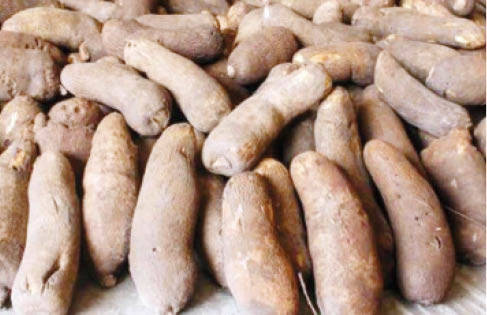314 seed entrepreneurs may improve farmers’ access
The Federal Government has increased the number of seed entrepreneurs in the nation’s agricultural sector to 314 to scale up farmers’ access to quality seeds. Dr Philiph Ojo, Director General of the National Agricultural Seed Council (NASC) told journalists in Abuja that the board of the council has approved the licences of 158 additional new […]

The Federal Government has increased the number of seed entrepreneurs in the nation’s agricultural sector to 314 to scale up farmers’ access to quality seeds.
Dr Philiph Ojo, Director General of the National Agricultural Seed Council (NASC) told journalists in Abuja that the board of the council has approved the licences of 158 additional new seed entrepreneurs to add to the existing 156.
The 158 new entrants include 16 small scale companies, 133 producer and seller entrepreneurs and nine seed dealers.
“In all, the country now has 314 seed entrepreneurs, made of four large scale, seven medium scale, 39 small scale, 223 producer seller and 20 seed dealers,” he said.
Dr Ojo, however stated that the board has declared 21 seed entrepreneurs inactive, adding that “this by law means they cannot participate in seed-related activities until the council reassess and recertifies their facilities.”
The DG, who gave the rationale behind adding more seed companies and entrepreneurs, said the decision was “borne out of the determination to allow many qualified entrepreneurs to explore the budding liberalised landscape of the seed industry.”
Currently, the country’s millions of smallholder farmers do not have access to quality seed and seedlings – a situation that has made yield far below the global average or even compared to other African countries like Kenya and South Africa.
However, if these new entrants will significantly increase farmers’ access largely remains to be seen.
The council did not however say the quantity of seeds the new initiative will produce.
However, the Nigeria Seed Advocacy Group – a coalition of farmers groups advocating for increased farmers’ access to quality seed – said adequate funding of NASC and other relevant agencies such as research institutes was key to facilitating the sustainable availability, affordability and accessibility of quality seeds for farmers to use.
The group opined that government seems to have more bias for fertiliser, noting that yield will not change unless there is a holistic approach to quality seeds.
With 16 research institutes working on different mandate crops, quality seed shouldn’t have been a problem for millions of farmers in the country but most of these institutes are mere shadows of themselves.
Experts say nothing will change much if the country does not step up funding of research and development in quality seed – something most of the companies licenced do not the have the capacity to do.
